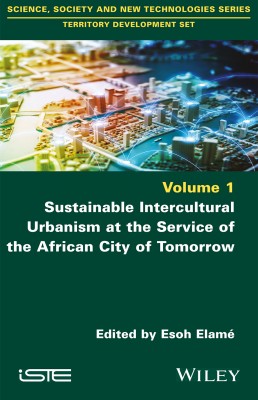
Most African cities are human settlements that lack the systems needed for effective land use planning. In fact, the disorganization that prevails has become so complex that the concept of urbanism itself has been called into question. This book highlights the need to restore urban planning in African cities through sustainable development and interculturality. Furthermore, it addresses the balance of power between urban planning and sustainable development and explores the historical and postcolonial aspects of urban planning in African cities.
A case study focusing on the development of sustainable cities and neighborhoods in the M’Zab Valley is also included, as well as topics such as urban greening, climatic threats and the problem of state agro-industrial land transactions, which compete with sustainable urban planning.
Sustainable Intercultural Urbanism at the Service of the African City of Tomorrow is a valuable reference for researchers and practitioners interested in urban issues in African cities. These cities, in particular sub Saharan cities, have long been excluded from any discourse on sustainable cities and urban planning; this book places the focus on these cities and acknowledges their varied urban realities. The intention is to spark a new debate on sustainable urban planning in African cities based on intercultural sustainable urbanism, which is key to thinking about and building ecological, intercultural, compact, intelligent and postcolonial cities.
1. Intercultural and Sustainable Urban Planning, Esoh Elamé.
2. Understanding the Challenges of Postcolonial Urban Planning in Sub-Saharan Cities, Esoh Elamé.
3. A New Sustainable City in Southern Algeria: A?rem Ajdid of Tafilelt in Ighzar n’Mzab, Nora Gueliane.
4. The Problem of Endogenous Urban Greening of Cities in the Congo Basin, Esoh Elamé.
5. The Contribution of Space Technologies in Understanding Environmental Devastation Due to Climate Change in African Cities: The Case of Kribi, Cameroon, Philippes Mbevo Fendoung.
6. Sustainable Planning in the Context of Agro-Industrial Land Allocations in Cameroon: The Case of the Town of Nanga-Eboko, Joseph-Éric Nnomenko’o.
Esoh Elamé is a geographer, town planner, geologist and pedagogist. He is a professor at the University of Padua, Italy, as well as a permanent associate professor at the National Advanced School of Public Works and at Institut des Relations Internationales du Cameroun (IRIC) of the University of Yaoundé II, Cameroon. His research focuses on African cities and intercultural sustainable development.